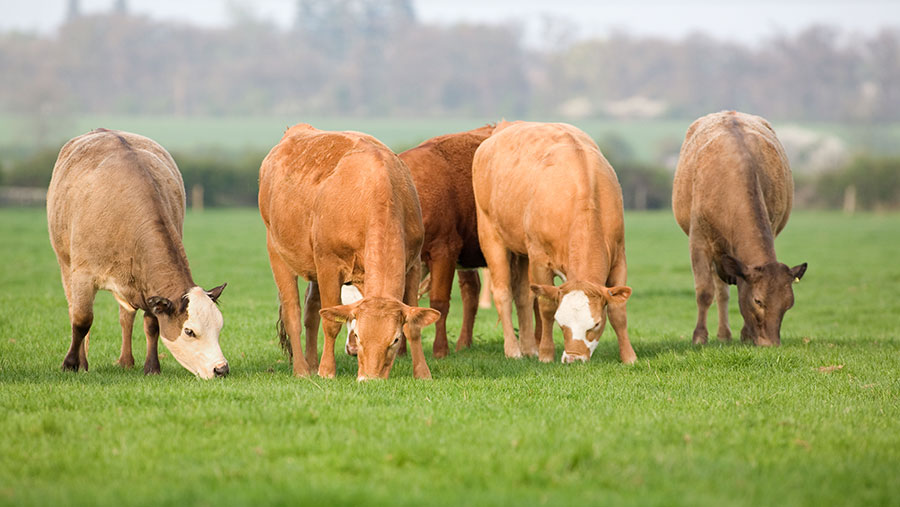Supermarkets blockaded in Irish beef protest
 © Tim Scrivener
© Tim Scrivener Irish farmers campaigning for higher beef prices have blockaded a Tesco central distribution centre in Donabate, County Dublin
The blockade started at 7am on Monday (9 December).
See also: Irish beef backlog prompts UK price fears
The Irish Farmers Association said the protest would last 12 hours. It follows similar action at Aldi and Lidl central distribution centres last week.
IFA president Joe Healy said a statement by Larry Goodman’s ABP Group that they would increase beef prices was typical of a lack of transparency from meat factories.
Bizarrely, it contained no specific figure, said Mr Healy. “From talking to farmers, it would seem that generally the price rises appear to be 5c/kg for heifers and 10c/kg for steers,” he said.
Prices ‘well short’
“This still leaves the Irish price well short of the Bord Bia EU benchmark and it remains over 50c off the UK price, as their market continues to strengthen.
“The UK price increased again last week and sterling improved to 84p/€1 last Friday.
Mr Healy added: “It is clear, based on market increases, that the factories, including ABP, could have increased cattle prices some weeks ago, but they did not.
“Instead, they pocketed the increases for themselves and refused to pass it back to farmers.”
Meat Industry Ireland, the trade body representing Irish meat processors, had adopted the same stalling tactic at last week’s Beef Taskforce meeting, claimed Mr Healy.
The taskforce was set up by the Irish government earlier this year in an attempt to find a way forward for the Irish beef sector.
‘Work together’
Speaking after the meeting, Irish farm minister Michael Creed said: “It is imperative that the entire sector works together to secure the future of Irish beef.”
But Mr Healy said farmers had been “appalled” to see Tesco advertising “half price” beef within the past few days.
“This unsustainable discounting puts downward pressure on beef prices and is an insult to farmers and the work they do,” he said.
Mr Healy said the IFA would continue its action until there was a substantial price increase.
“We don’t have to wait until ‘price setting Friday’, as ABP insisted in their press statement. This can happen any day,” he said.
“This sort of controlling practice only serves to fuel the belief among farmers that ABP is abusing its dominant position in the market,” Mr Healy said.
‘Illegal action’
“I would call on the other meat processors to break from this practice and announce a further price increase immediately, in line with increases in the market.”
The ABP Group said it would increase the price it pays for cattle from this week.
It accused the IFA of pursuing irresponsible, disruptive and illegal action by blockading supermarket distribution centres.
European Union trade commissioner Phil Hogan has called for both sides to engage in co–[operation and dialogue rather than confrontation.
The EU had played its part in alleviating the pressure on farm incomes by allocating €100m to the Irish beef sector, with half the money coming from Brussels, he said.
Irish beef prices down by almost 20%
Irish beef prices have slumped by almost 20% over the past 18 months, according to the latest market prices published by Bord Bia.
The Irish weekly R3 steer price stood at €4.12/kg deadweight, excluding VAT, during mid-2018, according the the food board’s latest cattle price dashboard.
By last week, it had fallen as low as €3.42/kg deadweight.
The Irish Cattle and Sheep Farmers Association (ICSFA) says momentum is shifting towards a beef price increase following a meeting last week of the Irish Beef Taskforce.
ICSFA president Edmond Phelan said: “The pressure on processors to move on price is unrelenting and justifiably so.
“Farmers who are not under pressure because of age limits should be holding out for a price rise, as it is unlikely this pressure can be withstood.”
Prices are “way back from where they should be”, with no justification, says Mr Phelan.
“Bord Bia’s beef price index clearly shows UK and EU prices are on an upward curve, whereas our prices have flatlined at best. This is totally unacceptable.”
